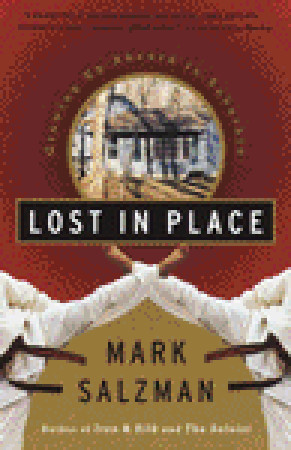At times funny, more often a serious exploration of a teenager’s search
for meaning in the 1970s, I was entertained, but little more. As a teen,
I would have been shaking my head and staying away from this guy and the
people in his life. Some of his teachers were inspirational, which was
good, because it meant when he went mildly bad (not in the same way as
Michael or others he knew), he could find his way back. His kung foo
master wasn’t anyone that I would want to study under, but was probably
the only teacher in the area. As much as the man disgusted me, I have to
admit that Mark learned some good lessons from him. His parents were
solid rocks, but in true ‘70s style, sent him off without supervision or
questions –I remember being told to “be back for supper”, too. It was
neat that even though he was obsessed with whatever he was studying,
whether it was kung fu, pot, music, Chinese culture or anything else, he
could still be grounded by joining his father for astronomy. In short,
the book was a rambling monolog of how a kid was raised in the 1970s,
with the narrowness of vision that produces and the nearly invisible
support systems. An interesting read.
Spoiler review:
After the intense read of my previous book, I was ready for something
lighter, and this fit the bill. It treads deep into the psyche of a
teenager in the 1970s, but much of it is told in a mildly humorous way.
The book is about obsession, and how the teenaged mind processes it.
Mark obsesses with kung-fu as an early teen. I expect that the
dialog is dramatized, as are many of the memories. Like anybody that
age, he convinced his parents that he had to do kung-fu, even though the
school was an hour away. His mom taught music, while his dad was a
social worker. Before going to a dojo, Mark would watch Chinese movies
and try to become a master himself, taking over the basement. His
parents were remarkably tolerant of his obsession, but I suspect his
actual takeover was exaggerated.
The biggest chunk of this book
is about his kung-fu. His sensei O’Keefe was a drunk and a womanizer,
and I wonder what was in his past that caused him to be that way.
Regardless, I compare this with my own sensei, and wonder how he
survived as long as he did. My experience was completely the opposite,
so it’s hard to read about his very violent experience at the hands of
the sensei and the other students. Eventually when sensei strangled his
friend and started him breathing again, he left, finally of the age
where he could be uncomfortable with what was being done and judge for
it.
His friend Michael was a bully, but the way to gain respect
in those neighborhoods was to become strong, and kung-fu did it for
Mark. He was no longer bullied, and Michael became his best friend, but
that ended when he quit kung-fu. Michael got into drugs and died one
summer while Mark was in college.
Mark also got into a drug
stage, abandoning kung-fu for other enlightenment. This part of the book
was funny to read, as he learns all the wrong lessons from getting high.
He even tries to grow his own pot amongst his parents indoor flowers,
until his younger brother tattles on him. It’s often said that pot isn’t
addictive, and that may be true from a medical point of view, but it’s
clearly mentally addictive, as shown here. Fortunately, it was easy for
him to quit with the support system around him, as he got around the
need to be high all the time.
College was something Mark used to
avoid the last year of high school, and he planned to make enough money so he
never had to go to college. The plan, as with all of them, didn’t go as
he wanted, of course, and when he ended up at the dorm, he found his way
to Chinese studies, which led him to some amazing teachers, and life was
good.
Throughout the book, Mark theorizes on the meaning of
life, first from kung-fu, then drugs, then music, Buddhism, and painting
Chinese characters. He never figures it out, and analyzes his optimistic
mother and his depressive but accepting father –a realist, who is always
there for him. When Mark can’t figure things out, his father is always
there with advice, or a look that Mark knows exactly how to interpret
with the voice in his head.
The descriptions of the astronomy
sessions with his father, whether it’s traveling for two solar eclipses,
the comet impact with Jupiter, or searching for the horsehead nebula or
other celestial wonders, were great. Through it, the author ponders how small
humanity is compared with the stars, which makes him doubt his search
for meaning.
The book was well written, and had an easy cadence
to it, but I was only mildly interested in these recollections from a
teen life. Not much resonated, and I kept wondering how the kid would
survive. Fortunately, he grew out of it, as I guess most of us do.


